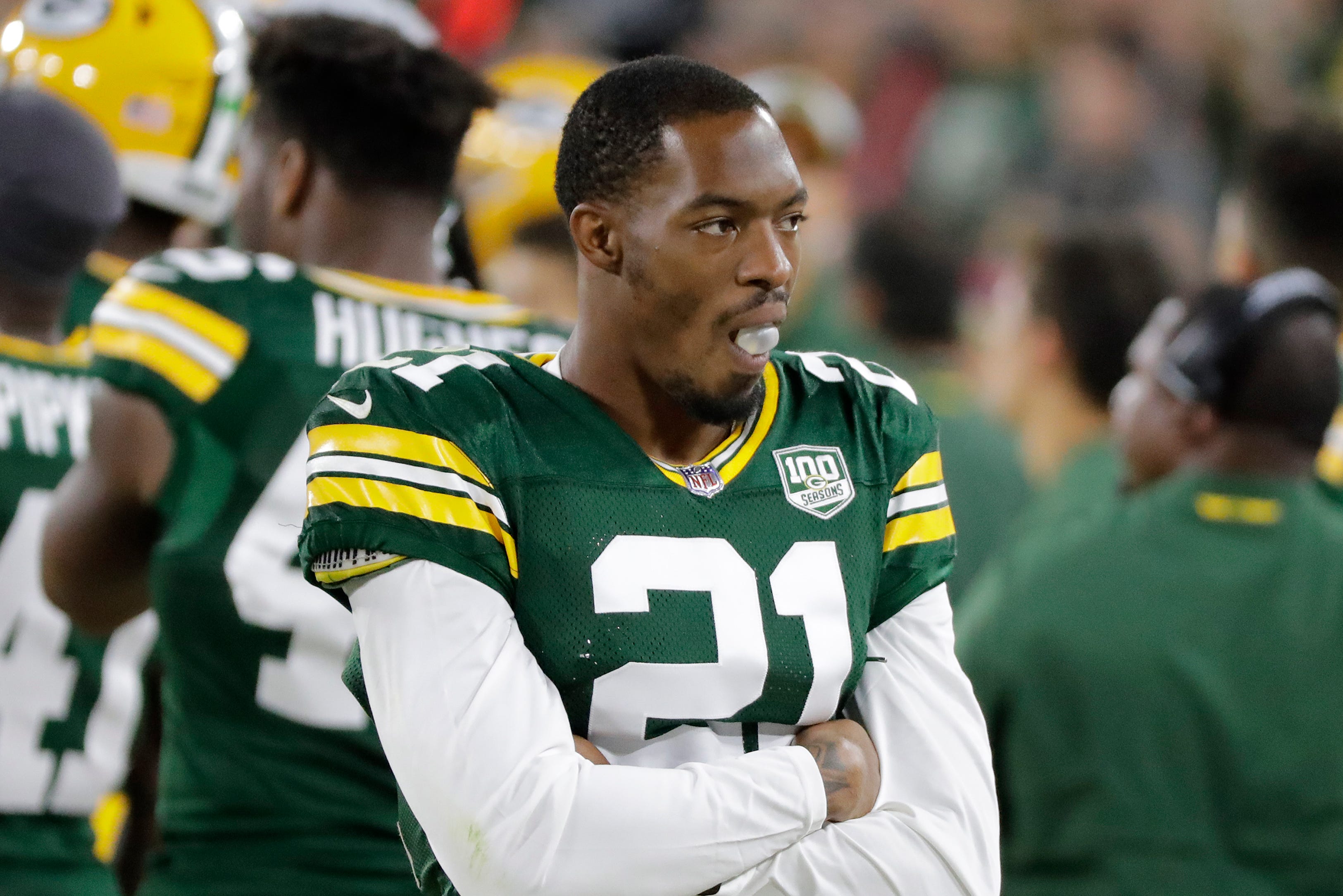Dougherty: Unraveling the mystery of Ha Ha Clinton-Dix's decline
 Pete Dougherty
Pete Dougherty

Going to the Pro Bowl after the 2016 season might have been the worst thing to happen for Ha Ha Clinton-Dix’s football career.
One of the great mysteries of the 2017 and ’18 Green Bay Packers is what happened with Clinton-Dix. He went from the verge of stardom to an underperforming, discontented player the Packers had no qualms trading to Washington this week for a fourth-round draft pick.
At age 25, Clinton-Dix should have be hitting his peak as an NFL safety, yet he has regressed to the point where the Packers considered the former first-round draft pick part of the problem, not part of the solution, to their defensive issues.
And much of it traces back to Clinton-Dix’s Pro Bowl two years ago. He came away from that honor thinking he was a great player entitled to a huge contract. His work ethic and attention to detail suffered, and his quest to make big plays prevailed at the expense of doing his job.
Anyone who has watched the Packers regularly the last 1½ years has witnessed his incredibly uneven play. Though he intercepted six passes going back to 2017, he also gave up far too many plays by gambling in coverage and missing tackles as the last line of defense.
We’ll have to see how Clinton-Dix’s career goes from here. Maybe this will be the jolt he needed to get back on track and make the Packers regret the deal. But based on what we know to date, Brian Gutekunst, the team’s general manager, did well to get a fourth-round draft pick for him.
“He thought he was good enough that he didn’t have to study as much as a rookie (does),” a team source said of Clinton-Dix’s mindset the last two seasons. “He’s guessing (in pass coverage). He’s thinking that’s how you get paid.”
The Clinton-Dix trade this week brings to mind the Packers’ release of guard Josh Sitton just before the start of the 2016 season. Like Sitton's, Clinton-Dix’s play had declined. Like Sitton, he felt deserving of a lucrative contract extension but was rebuffed by the team. And like Sitton, his indignation carried over to the locker room, where he groused to teammates about not being rewarded with a new deal.
NFL teams don’t like unhappy veterans influencing ascending young players, especially if that veteran isn’t a star. So first with Sitton and now Clinton-Dix, the Packers very suddenly parted ways. They never missed Sitton. We’ll see in the second half of this season whether the same is true with Clinton-Dix.
At first blush, it’s hard to see why Clinton-Dix thought he was in line to become one of the highest-paid safeties in the league, which sources said he had in fact told teammates. He was on track for that kind of deal in ’16, which was his third season in the league. But after the drop-off in his play in 2017 the Packers would have been crazy to pay him big. This season has only confirmed their decision.
But it’s probably worth remembering Clinton-Dix’s football background on this point.
Coming out of high school in 2011 he was among the bluest of blue-chip players in the country. According to Rivals.com and SuperPrep magainze, he was the No. 1 prospect in Florida, which ranks with California and Texas as the premier states for producing college players. Rivals.com also ranked him the best safety prospect in the country that year.
He signed with the nation’s dominant, talent-saturated college program, Alabama, where he played as a backup as a true freshman, started the next two seasons and twice played in the national championship game.
And then he was a first-round draft pick in the NFL, No. 21 overall, by the Packers in 2014.
In other words, he’s always been The Man.
Maybe that’s why he assumed he was in for a big pay day and failed to realize that the drop in his play last year made a new deal a non-starter going into 2018.
The top-paid safeties in the league are Kansas City’s Eric Berry ($13 million average) and Miami’s Reshad Jones ($12 million).
I don’t see how a team would pay him even half what those players earn. Not if they’ve watched the game video from the last 1½ seasons.
It’s true that Clinton-Dix has his moments of excellence, like his impressive interception of Buffalo rookie quarterback Josh Allen in Week 4 this year. On that play, Clinton-Dix held his deep zone until Allen threw outside, then made a strong break on the ball and knocked receiver Kelvin Benjamin out of the game while making a tough, physical interception.
But then there are the big plays where he freelanced and gave up points.
In Week 2 against Minnesota he sat back hoping for an overthrow interception rather than stepping up to pick up Laquon Treadwell on a 14-yard slant for a touchdown.
In Week 3 against Washington he gave up a nine-yard touchdown pass to Jamison Crowder even after cornerback Tramon Williams pointed to alert him to a possible slant coming his way.
In Week 5 at Detroit, he gave up an eight-yard touchdown pass to Marvin Jones when he blatantly abandoned his zone in quarters coverage looking to make a big play.
And who can forget how he mailed it in during the last game of 2017, with the Packers out of the playoff race? That’s not the way to play if you’re looking to get paid.
“He’s just so incredibly inconsistent,” said a high-ranking scout for another NFL team.
Clinton-Dix gave the Packers reasons to like him for three years. Though he can’t outrun his mistakes – he ran only a 4.58-second 40 – he’s a big safety (6-1 3/8, 208) with long arms (32 3/8 inches). He improved in each of his first three seasons and looked like a burgeoning leader.
He also has the prized quality of durability. In his 4½ years with the Packers he never missed a game, and in the last 3½ he took part in more than 99 percent of the team’s defensive snaps.
But after a Pro Bowl season in 2016 he lost his edge, fell in love with the idea that he’s a playmaker and turned into a gambler at a position that punishes gamblers.
He thought he’d arrived, but all he did was play his way out of town.
